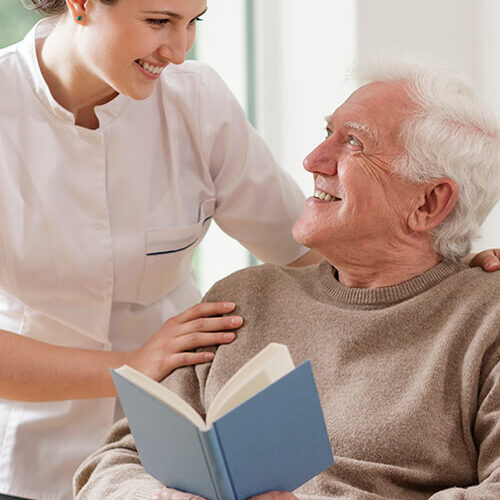1 Busy Bee Care Services Inc will provide the following home health care programs at flexible schedules and cost-friendly service rates.

Individual community living supports (ILCS)
Individual community living supports (ICLS): Bundled service that includes six service components. ICLS services offer assistance and support for older adults who need reminders, cues, intermittent/moderate supervision or physical assistance to remain in their own homes.
ICLS covers assistance and support for eligible people age 65 and older enrolled in the Alternative Care (AC) program or the Elderly Waiver (EW). It includes the following service components:
- Active cognitive support.
- Adaptive support service.
- Activities of daily living (ADLs) support.
- Household management assistance.
- Health, safety and wellness.
- Community living engagement.
The case manager/care coordinator must complete ICLS Planning Form, DHS-3751 to provide guidance and instruction to the ICLS provider about the needs of the person for each applicable service component. People receiving ICLS services must receive assistance and/or support in a minimum of two of the six ICLS service components.
Individual community living supports (ILCS)
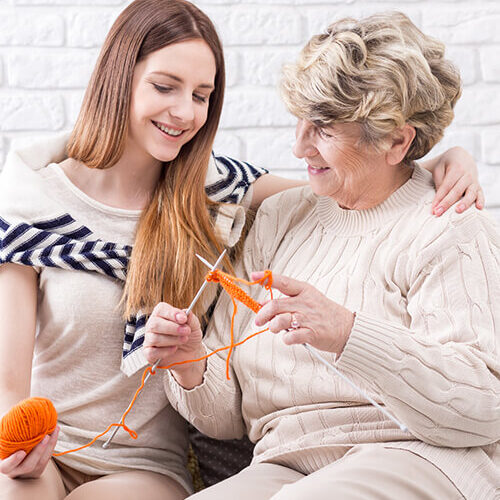
24-hour emergency assistance
24-hour emergency assistance: On-call counseling, on-call problem solving and/or immediate response for assistance at a person’s home due to a health or personal emergency that is not related to an injury or an immediate danger. This service does not replace the use of 911 when necessary.
Immediate response: A timely action done without delay. An immediate response does not require staff to be physically present if alternative delivery methods are chosen and work for the person. The type of immediate response must be specific to the person’s needs, as identified in their support plan.
Non-equipment
This service covers the following non-equipment services:
- Immediate response for assistance at the person’s home.
- On-call counseling and problem solving.
Equipment
This service covers the following equipment services:
- Personal emergency response system (PERS) installation and testing.
- PERS device and monitoring.
Primary caregiver: Individual principally responsible for the care and supervision of the person. The primary caregiver must maintain their primary residence at the same address as the person and be named as an owner or lessee of the primary residence.
24-hour emergency assistance
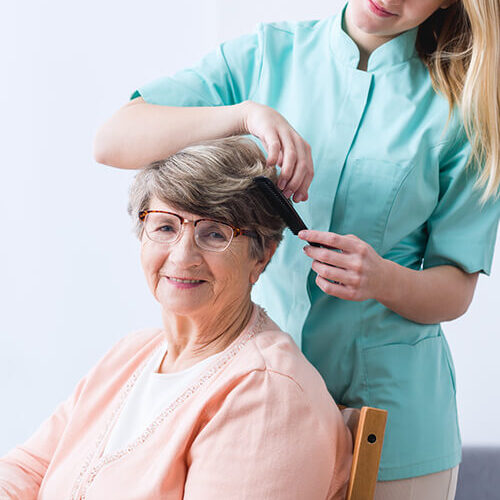
Night supervision services
Night supervision services: Overnight assistance and supervision provided by a staff in the person’s own home when the person has an assessed need in one of the covered services areas.
For information about own home requirements, refer to CBSM – Requirements for a person’s own home.
Eligibility
A person is eligible to receive night supervision services if they:
- Live in their own home.
- Are assessed to need overnight assistance and supervision in at least one of the following areas:
Implementation of the person’s positive support programming and transition plans.
Reinforcement of skill development supports (e.g., individualized home supports).
Assistance with activities of daily living (ADLs).
Assistance with instrumental activities of daily living (IADLs).
Covered services
Night supervision services include an asleep or awake staff in the person’s own home performing an activity listed in the eligibility section.
Night supervision services
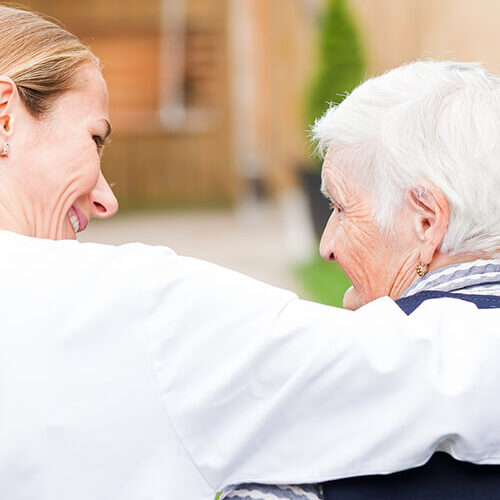
Adult companion services
Adult companion services: Non-medical care, supervision and socialization provided to a person age 18 or older.
Adult companion services cover services that help a person work toward a therapeutic or community integration goal in their support plan.
Examples
The adult companion may:
- Attend a movie with the person to practice coping skills to manage their social anxiety
- Go with the person to a community event to reduce their social isolation
- Play a board game with the person to enhance their fine motor skills
- Provide verbal instructions or cues to the person to help them complete a task
- Assist or supervise the person with tasks such as laundry, light housekeeping, meal preparation and shopping (for more information, see the secondary information section).
Adult companion services
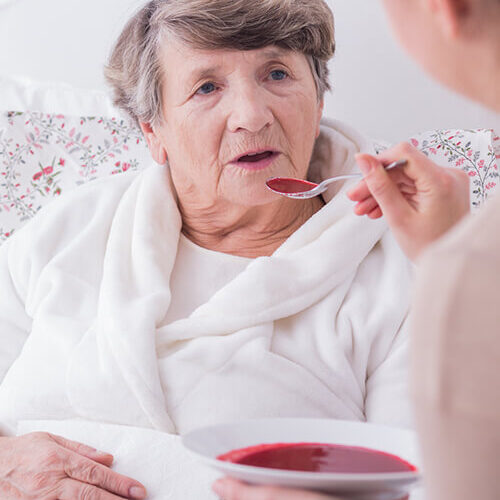
Individualized home supports (IHS)
Individualized home supports (IHS): Services for people who live in their own home or family home that provide support and/or training in the community living service categories listed in the covered services section. There are three types of IHS:
- Without training.
- With training.
- With family training.
All types of IHS can be provided in the person’s own home, family’s home or in community spaces used by the general public, and either in person or remotely (refer to the remote support service delivery option section on this page).
Support in community living service categories: Cueing, skill maintenance, guidance, instruction, assistance with activities of daily living, assistance with coordination of community living activities or direct supervision. Support must be within an allowable community living service category.
Training in community living service categories: Skill-building and instructional services to acquire, retain and improve the person’s experience living in the community. Training must be within an allowable community living service category, and training must meet identified needs specified in the person’s assessment (e.g., MnCHOICES, long-term care consultation).
|
IHS is available to people who meet the following criteria: 1. Live in their own home or their family’s home. 2. Receive services through one of the following waivers:
Service options for IHSThe IHS service options available to a person are based on their age, living arrangement and the type of support and/or training they need. Without trainingThis service option is provided to adults or children when they need support in at least one of the community living service categories. With trainingThis service option is provided to adults when they need support and training in at least one of the community living service categories. This option meets the habilitation requirement for the DD Waiver. For more information about the habilitation requirement, refer to CBSM – Habilitation. With family trainingThis service option is designed for people who live with their family to provide training to the person and their family members. The training increases their capabilities to care for and maintain the person’s ability to live in the home. This service option is provided to adults when the person and their family needs support and training in the family’s home in at least one of the community living service categories. This service option is provided to children when either of the following is true:
This option meets the habilitation requirement for the DD Waiver. For more information about the habilitation requirement, refer to CBSM – Habilitation. Additional informationFor additional information about these service options, refer to CBSM – Resource: Service options for IHS IHS covers community living services in four categories:
When a person receives IHS without training, they must receive support in at least one of the community living service categories. (Refer to the definition section for information about support.) When a person receives IHS with training or IHS with family training, they must receive training in at least one of the community living service categories. They also may receive support in any of the community living service categories. (Refer to the definition section for information about training and support.) Community participationThis category may include:
Health, safety and wellnessThis category may include:
Household managementThis category may include: 1. Cueing, guidance, supervision, training or instructional support to complete routine household care and maintenance. 2. Household safety knowledge and skills. 3. Tenancy support and advocacy. 4. Training, assistance, support and/or guidance with:
Adaptive skillsThis category may include:
|
|||
Individualized home supports (IHS)
Quote calculator
If you require services on a public holiday, overnight services or live-in services, please call (612) 741-2515 so we can discuss prices with you.
Frequently asked questions
Does having home care result in a loss of independence?
No. Our belief is that independence is being in control of your decisions. Having in home care services means being in control of your activities and retaining as much independence as each situation allows. Many of our clients just need a little help to continue living a safe and productive life while some might be recovering from a fall or surgery, or other condition. Regardless of your situation, our goal is to enable you the best possible outcome while being in control of your care and daily decisions.
How can I trust a caregiver in my home?
Just like nurses and doctors, Professional Caregivers have chosen a career in compassionate care of those in need. SaaS Home Care, LLC implements a proprietary CareAssure Screening System which includes a comprehensive background check and screening for compassion, identity, integrity, and competence. Less than 5% of all applicants meet our stringent screen and we rarely advertise for caregivers as most come from word of mouth referral from other happy clients.
How does SaaS Home Care, LLC attract the best caregivers?
Our Golden Rule states ‘We will not refer a caregiver into your home that we would not welcome into our own home.’ This high bar was set by our founder in 1982 and is the backbone of our mission. Similar to any working professional, caregivers are attracted to organizations that have trust, compassion, stability, and hope. We encourage you to meet one of our local Directors or Referral Specialists as they will treat you with as much compassion and dignity as they afford to each caregiver they refer.
What if we don’t like our caregiver?
Contact us and we’ll refer another caregiver quickly at no additional referral cost.
Will we have a choice in selecting the caregiver
Our CarePairing Process works with each family to understand what unique skills and personality are desired in a caregiver. Feedback from satisfied clients usually indicates that a personality match is the #1 factor in a caregiver match, so we highly encourage client input. We will then make a referral based on our experience and your input.
What is the process of finding a caregiver?
We make the process of finding a caregiver very simple and prompt using our QuickCare Placement program. Give us a call and we’ll conduct a brief phone discussion to understand your needs. We then can meet anyone involved in selecting and paying for care at your home for an in-home needs consultation. Within 24 hours of that visit we are usually able to refer a professional caregiver to your home. Our team continuously screens caregivers beyond current demand to give you quick access to the best caregivers in our community.
